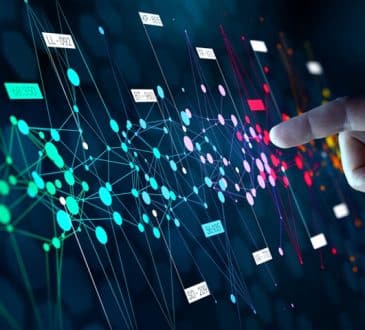The Great Reset: An Opportunity for Bold Leaders

While it is a generally accepted wisdom that every business strategy will at some point fail, and that every company must occasionally re-imagine itself to remain relevant and thrive, this time it’s different. All at once, every company must now adapt to dramatic and rapidly changing circumstances.
One of the consequences of the global COVID-19 pandemic is that every consumer on the planet is being forced to try and adopt new ways of connecting, living, working, buying, and behaving. In the process, consumers are reassessing what they value. For businesses, the scale of this change is unprecedented. We are embarking on a ‘Great Reset’ in which every aspect of the societal—and, therefore, commercial—status quo will be called into question.
This is both a huge challenge AND a massive opportunity. Leaders who see beyond this crisis—who truly ready their businesses for the new normal—will not only weather the storm, they will come out of this stronger than before.
Changing Attitudes and Behaviors
I have always believed that attitudes, not factors like age or income, drive consumer behavior. The more you understand why consumers make the decisions they do—their underlying beliefs and values—the better equipped you are to become deeply meaningful to them.
Most of the time these attitudes evolve slowly, but this crisis has upended everything, including your customers’ mindsets. This means that every business needs to quickly glean what is changing, and identify specific insights that will help them either adjust or completely pivot their strategy. Though it is early in the crisis, we have already noticed three critical shifts in how consumers are thinking about the present and the future.
Consumers’ attitudes about themselves and others are shifting. For obvious reasons, the pandemic has caused people to focus on their physical and mental health. Almost all Americans (85%) say they are concerned about their personal health. While handwashing and hygiene is a focal point (75% are actively washing their hands to avoid illness), people are also paying more attention to their mental health. For example, there has been a 51% increase in viewership of meditation-related videos.
The sense that we’re all in this together has given rise to both positive and negative attitudes toward each other. Consumers are worried about others (79% of Canadians are worried about people all over the world becoming sick); doing their part to slow the spread (97% of Canadians are actively avoiding public places or changing travel plans); and planning to give back (36% of Canadians and Americans are more interested in donating to or volunteering for a charity when this is all over). At the same time, however, they are mistrustful—fewer than 30% of Canadians believe that their neighbors are following the public health guidelines.
In short, many people are calling long-held beliefs and loyalties into question and rethinking who they are and who they trust. This will have profound implications for what consumers expect from brands and how they evaluate commercial propositions in the future.
Consumers’ attitudes about everyday life are shifting. Despite massive leaps forward in the ability to work, learn, connect, and socialize (made possible through technological advancements over the past few decades), until now, our daily societal routines and expectations still largely resembled the broad norms established post WWII. While some of these long-held beliefs and norms have been slowly evolving, all of them are now in full review.
Most people are working from home; connecting digitally (social media usage among those under 35 increased 40% and Zoom reached 200M+ daily users in March); eating at home more; and planning to stay put (63% of Americans say they would need to hear a vaccine was ready for release before they would consider traveling again). And, this is not changing anytime soon—59% of Americans say they expect to behave differently for the long term.
The everyday is now up for grabs. Consumers are willing to try new things and are beginning to realize the potential flexibility, productivity, and, in some cases, life balance that technology and progress have long promised. At the same time, however, this means they are no longer as loyal to those things (or brands) they used to hold close.
Consumers’ attitudes about the future are shifting. The realistic threat of a prolonged economic downturn and the uncertainty it brings are significantly influencing overall attitudes. Most Americans are already financially concerned about the impact of COVID-19. This has led to a disruption of normal buying behaviors as consumers become more restrained and thoughtful about how and when they spend their money.
Some of the most firmly held truths—that the current way of life is predictable, that upward mobility is a given, that unemployment is temporary, and that a better life includes more and nicer things—are being glaringly called into question. Uncertainty about the future will be paralyzing for some and motivating for others, but it means that everyone is re-evaluating what truly matters to them and why.
These three shifts—deep-seated realignment of personal attitudes, daily routines, and vision of the future—are already having an outsized impact on consumer behavior.
Preparing for The New Normal.
The Great Reset is coming into view, and leaders should not wait for further evidence or specificity to act. Your customers have reset their routines and priorities and are in the process of re-examining their values. It is not a stretch to conclude that they will re-evaluate their preferred brands and suppliers, and more generally, where they focus their spending. Use this momentum.
Now is the time to act (you can always course correct as you go). Here are six things that you can do now to set yourself up for success in the emerging new normal:
- Be bold. Take a risk and think bigger. Build to the future rather than from the past. Let your target customer and your brand values be your anchor points, and get clear on the benefits you enable for customers as different from what you functionally do (for example: are you selling food or a longer and more enjoyable life? Are you in the banking business or the dream fulfillment business?) Then, take a blank sheet of paper and define how best to deliver that benefit for your target customer within the new normal.
- Don’t be afraid to get scrappy. Figure out the right offerings and experiences with your customer. Get something out to them right away that they can react to and let your target customer guide your execution through their reactions and input.
- Embrace digital. Digital literacy and trial of all things virtual just jumped dramatically. Some customers have discovered that it’s the better way to fulfill their needs, while others long to go back to stores and interact with the world. Many want some combination of the two, and across the board there is a new awareness of what is possible. If digital isn’t already a fully integrated part of your customer experience and, if you aren’t actively looking for new technology to enhance that experience, start now.
- Buy more customers. Double down on bringing new customers into the fold; the costs associated with customer acquisition (search, media) are down and will continue to fall. Think of the next few quarters like the first few rounds of Monopoly. Acquire as much as you can while it is available and reap the benefits when the dust settles. The early movers will have the greatest advantage.
- Nail your employee value proposition. It’s not just customers that are going through a reset. This is a time of change, which means that some exceptional talent will be in play. Now is the moment to sharpen your employee proposition and ensure you are attracting and retaining the talent you need to win.
- Stand for something. The shift from a ‘value economy’ to a ‘values economy’ was already underway. As we become more aware of our own personal and collective social responsibilities, our expectations of others are rising, and the same holds true for brands. The values bar will be higher coming out of this. Brands that stand for more than just the functional selling of goods and/or services will stand out and resonate more deeply.
As consumers re-evaluate what is important to them and why, every business and brand will come under new scrutiny. We will all be forced to respond to the new values and expectations of our consumers and to redefine the role we play in their lives.
The future is uncertain, but business leaders can’t wait to see what will happen next. Now is the time to gather your team and ask how you can adapt your offerings to ensure that your business continues to resonate with your evolving customer. Now is the time to figure out what your business or brand can do to authentically and meaningfully make a difference.
Now is the time to reinvent.
Written by Joe Jackman. Have you read?
Moldova CIP: Moldova Citizenship By Investment Program, Turkey CIP: Turkey Citizenship By Investment Program, Portugal Golden Visa Program, Dominica Citizenship by Investment Programme
Add CEOWORLD magazine to your Google News feed.
Follow CEOWORLD magazine headlines on: Google News, LinkedIn, Twitter, and Facebook.
This report/news/ranking/statistics has been prepared only for general guidance on matters of interest and does not constitute professional advice. You should not act upon the information contained in this publication without obtaining specific professional advice. No representation or warranty (express or implied) is given as to the accuracy or completeness of the information contained in this publication, and, to the extent permitted by law, CEOWORLD magazine does not accept or assume any liability, responsibility or duty of care for any consequences of you or anyone else acting, or refraining to act, in reliance on the information contained in this publication or for any decision based on it.
Copyright 2024 The CEOWORLD magazine. All rights reserved. This material (and any extract from it) must not be copied, redistributed or placed on any website, without CEOWORLD magazine' prior written consent. For media queries, please contact: info@ceoworld.biz
SUBSCRIBE NEWSLETTER








